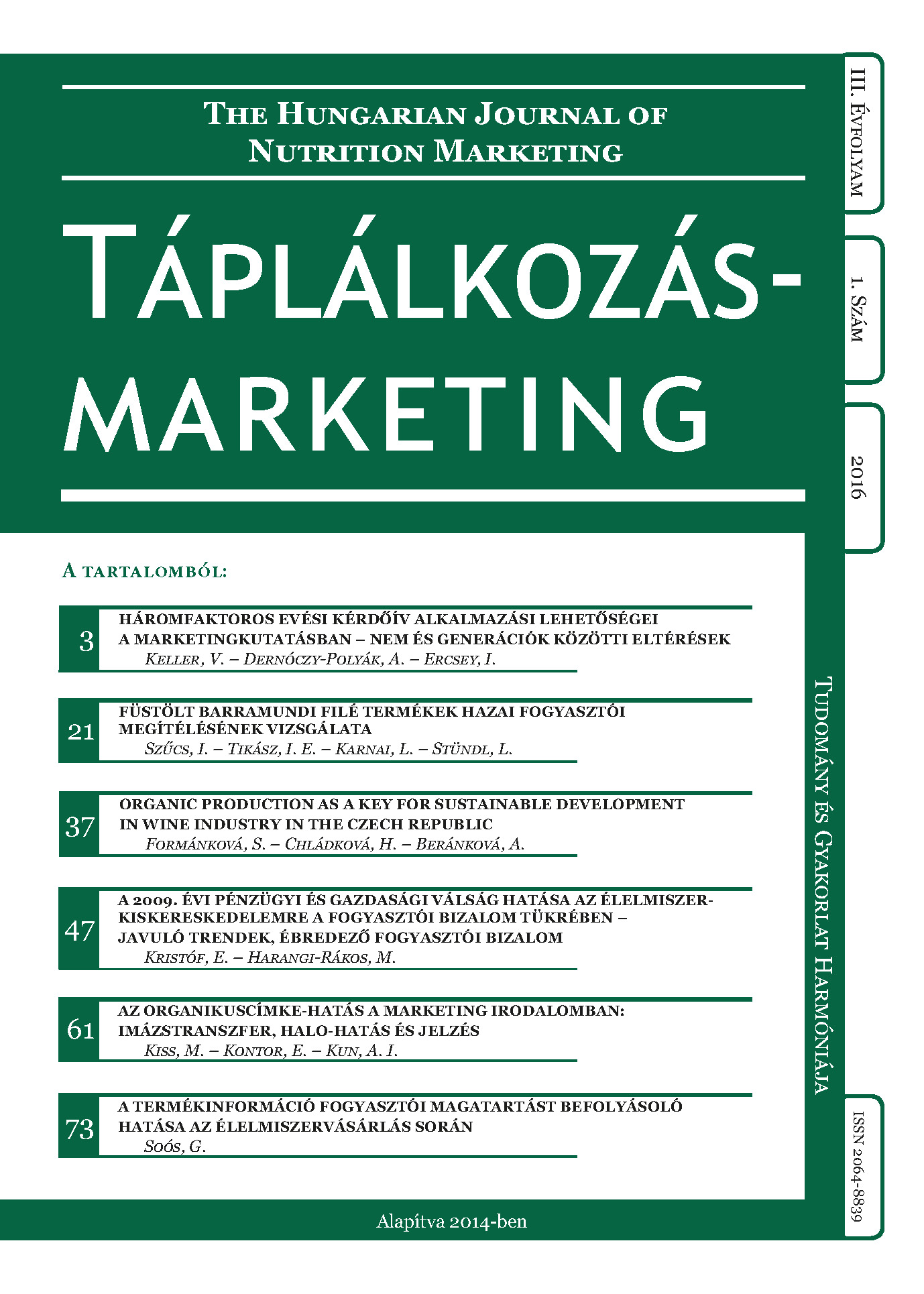The Effect of Product Information on the Consumer Behaviour in the Course of Food Purchase
Author
View
Keywords
License

This work is licensed under a Creative Commons Attribution-NoDerivatives 4.0 International License.
How To Cite
Abstract
This study investigates the course of the consumer’s information progression in order to underlie further quantitative and qualitative researches. This survey reviews the whole process of the information progression through which the consumer can decide which product to choose. The optimal consumption structure is configured by different principles and effects, and on the other hand every consumer is influenced by a diversity of information during the decision making process and the usage as well. The process of how individuals elaborate this information depends on numerous factors. The demographic and personality factors, qualification and profession, extant knowledge, the motivation for looking for information are very important as well as the evaluation of data. The cognitive, conative and emotive attitudes play an important role in the different stages of the information processes. The diverse information sources have a different effect on the consumer, too. The effectiveness of the information transfer is influenced by the consciousness of the consumer and how voluntarily they want to optimize their decision. In this process the extent to which they are concerned (for example a disease or prevention) plays a remarkable role. An important function of the stakeholders is to support the consumer’s decision with incomplex, laconic and authentic information. Without this the intended communication may generate a contradictory effect, however too much information may lead to rejection.
JEL codes: M31, P36


 https://doi.org/10.20494/TM/3/1/6
https://doi.org/10.20494/TM/3/1/6





